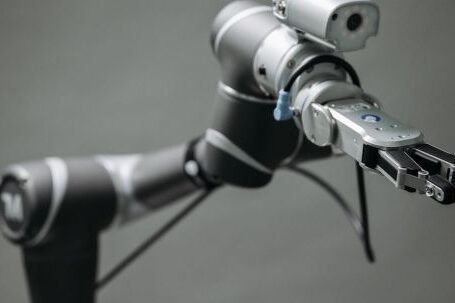In today’s rapidly changing technological landscape, artificial intelligence (AI) has emerged as a key driver of innovation across various industries. From healthcare to finance, AI has the potential to revolutionize the way we work, live, and interact. By leveraging advanced algorithms and machine learning, AI systems can analyze vast amounts of data, make predictions, and automate complex tasks. In this article, we will explore the role of artificial intelligence in driving innovation and its implications for the future.
Enhancing Efficiency and Productivity
One of the primary ways AI drives innovation is by enhancing efficiency and productivity. By automating repetitive tasks and streamlining workflows, AI systems free up human resources to focus on more complex and creative work. For example, in manufacturing, AI-powered robots can perform repetitive tasks with precision and speed, leading to increased productivity and reduced costs. Similarly, in customer service, AI-powered chatbots can handle routine inquiries, freeing up human agents to tackle more complex customer issues. By automating mundane tasks, AI enables businesses to operate more efficiently and allocate resources more effectively.
Enabling Personalized Experiences
Another area where AI is driving innovation is in the realm of personalized experiences. AI algorithms can analyze vast amounts of user data to understand individual preferences, behaviors, and needs. This enables businesses to deliver highly personalized products and services to their customers. For instance, personalized recommendation systems powered by AI are used by streaming platforms like Netflix and music apps like Spotify to suggest content tailored to each user’s taste. Similarly, e-commerce platforms use AI to personalize product recommendations based on a user’s browsing and purchase history. By leveraging AI, businesses can create unique and tailored experiences that resonate with their customers, leading to increased satisfaction and loyalty.
Advancing Healthcare
AI has also made significant strides in the field of healthcare, driving innovation in diagnosis, treatment, and patient care. AI algorithms can analyze medical records, images, and genetic data to assist in diagnosing diseases and predicting outcomes. For example, AI-powered imaging systems can detect early signs of diseases like cancer, enabling healthcare professionals to intervene at a stage when treatment is most effective. AI-powered chatbots can also provide virtual healthcare support, offering personalized recommendations and guidance to patients. By harnessing the power of AI, healthcare providers can improve patient outcomes, increase access to care, and lower costs.
Transforming Financial Services
The financial services industry is another sector where AI is driving innovation. AI-powered algorithms can analyze vast amounts of financial data, detect patterns, and make predictions, enabling more accurate risk assessment and fraud detection. For example, AI algorithms can analyze credit scores, transaction data, and social media activity to assess an individual’s creditworthiness and make lending decisions. AI-powered chatbots are also being used in the financial industry to provide personalized financial advice and assistance to customers. By leveraging AI, financial institutions can improve decision-making, enhance customer experiences, and mitigate risks.
Implications for the Future
As AI continues to advance, its role in driving innovation will only become more prominent. However, it also raises important considerations and challenges. Ethical concerns around privacy, bias, and accountability need to be addressed to ensure AI systems are fair and transparent. Additionally, there is a need for upskilling and reskilling the workforce to adapt to the changing nature of work in the AI era. While there are challenges, the potential benefits of AI in driving innovation are immense.
In conclusion, artificial intelligence is playing a crucial role in driving innovation across various industries. From enhancing efficiency and productivity to enabling personalized experiences, AI is reshaping the way we work, live, and interact. In healthcare, finance, and beyond, AI-powered systems are revolutionizing processes, improving outcomes, and transforming industries. As we move forward, it is essential to harness the power of AI responsibly and address the challenges it presents. By doing so, we can unlock the full potential of AI to drive innovation and shape a better future.





